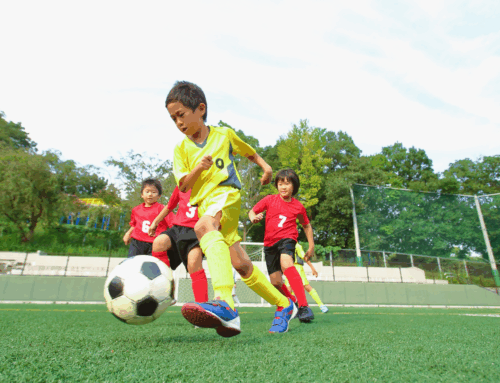Get our exclusive report. Download the iSport360 Club Switching Report Here – For Club Admins, Rec Leaders and Coaches.
Journaling Ideas for Youth Sports Athletes
Journaling is a powerful tool that can benefit youth sports athletes in numerous ways. Not only does it provide a space for reflection and self-expression, but it also enhances self-awareness, goal-setting, and mental toughness. Whether they’re striving for improvement, processing their experiences, or seeking motivation, here are some creative journaling ideas tailored specifically for youth sports athletes:
Performance Reflections:
Encourage athletes to reflect on their performances after practices and games. Prompt them to write about what went well, what they struggled with, and what they learned from the experience. This helps them identify strengths and areas for improvement, fostering a growth mindset and resilience.
Goal Setting and Progress Tracking:
Have athletes set short-term and long-term goals for their athletic endeavors and track their progress in their journals. Encourage them to break down their goals into smaller, actionable steps and celebrate each milestone along the way. This fosters accountability and motivation, driving them to strive for continuous improvement.
Visualization Exercises:
Guide athletes through visualization exercises in their journals, where they vividly imagine themselves succeeding in their sport. Encourage them to visualize specific scenarios. This can include executing a perfect play or winning a competition, and describing their thoughts, emotions, and sensations in detail. This helps build confidence and mental resilience, priming them for success on the field.
Gratitude Journaling:
Foster a positive mindset by encouraging athletes to keep a gratitude journal. They express appreciation for the people, opportunities, and experiences in their lives related to their sport. Prompt them to reflect on moments of joy, growth, and connection, cultivating a sense of gratitude and perspective amidst the challenges of competition.
Mindfulness Practices:
Introduce mindfulness practices into athletes’ journaling routines, such as mindful breathing exercises or body scans. Encourage them to observe their thoughts and sensations without judgment, allowing them to cultivate present-moment awareness and reduce stress and anxiety. This promotes mental clarity and focus, enhancing their performance on the field.
Pre-Competition Rituals:
Help athletes develop pre-competition rituals by encouraging them to journal about their pre-game routines, rituals, and mental preparations. Prompt them to write about what helps them feel calm, focused, and confident before competing, whether it’s listening to music, visualizing success, or engaging in a specific warm-up routine.
Reflection on Role Models:
Encourage athletes to reflect on their role models and the qualities they admire in them, both on and off the field. Prompt them to write about how these role models inspire and motivate them, and how they can embody similar traits in their own athletic pursuits. This helps athletes cultivate a sense of purpose and identity as they strive to emulate their heroes.
Challenges and Solutions:
Prompt athletes to identify specific challenges or obstacles they’re facing in their sport and brainstorm potential solutions in their journals. Encourage them to explore different strategies, seek advice from coaches or teammates, and reflect on past experiences where they’ve overcome similar challenges. This fosters problem-solving skills and resilience in the face of adversity.
Team Bonding and Reflection:
Encourage athletes to journal about their experiences with teammates, reflecting on the camaraderie, support, and shared goals that unite them. Prompt them to write about memorable moments, team victories, and challenges they’ve overcome together, fostering a sense of belonging and unity within the team.
Self-Care and Recovery:
Finally, emphasize the importance of self-care and recovery by encouraging athletes to journal about their physical and emotional well-being. Prompt them to reflect on their sleep, nutrition, hydration, and stress management habits, as well as any injuries or soreness they may be experiencing. This encourages athletes to prioritize their health and well-being, ensuring they’re able to perform at their best on and off the field.
Incorporating these journaling ideas into their routine can empower youth sports athletes to enhance their performance, foster resilience, and cultivate a positive mindset. By providing a space for reflection, goal-setting, and self-expression, journaling becomes a valuable tool for athletes to navigate the challenges and opportunities of their athletic journey.
iSport360 is the only app that does it all for youth sports. For more information on what we do, click here.
About the author:
Amy Masters is a sports mom, coach, and club administrator. She has been coaching youth sports for more than 10 years. She started Jr Lions Field Hockey, the youth recreation program for the Hunterdon County community growing it from 40 players in year 1 to 150 players by year 3. A few years later, she saw the love and competitiveness grow then started Omega Field Hockey Club serving NJ and PA players. Before coaching, she was a collegiate field hockey player for Lock Haven University. In her spare time (lol), she is head of marketing for iSport360 and the co-editor of the Youth Sports Survival Guide. The Youth Sports Survival Guide is the largest youth sports newsletter in the world.
Learn more or request a demo of our youth sports software that is helping teams improve communication, organization and player development.
July 8, 2024





